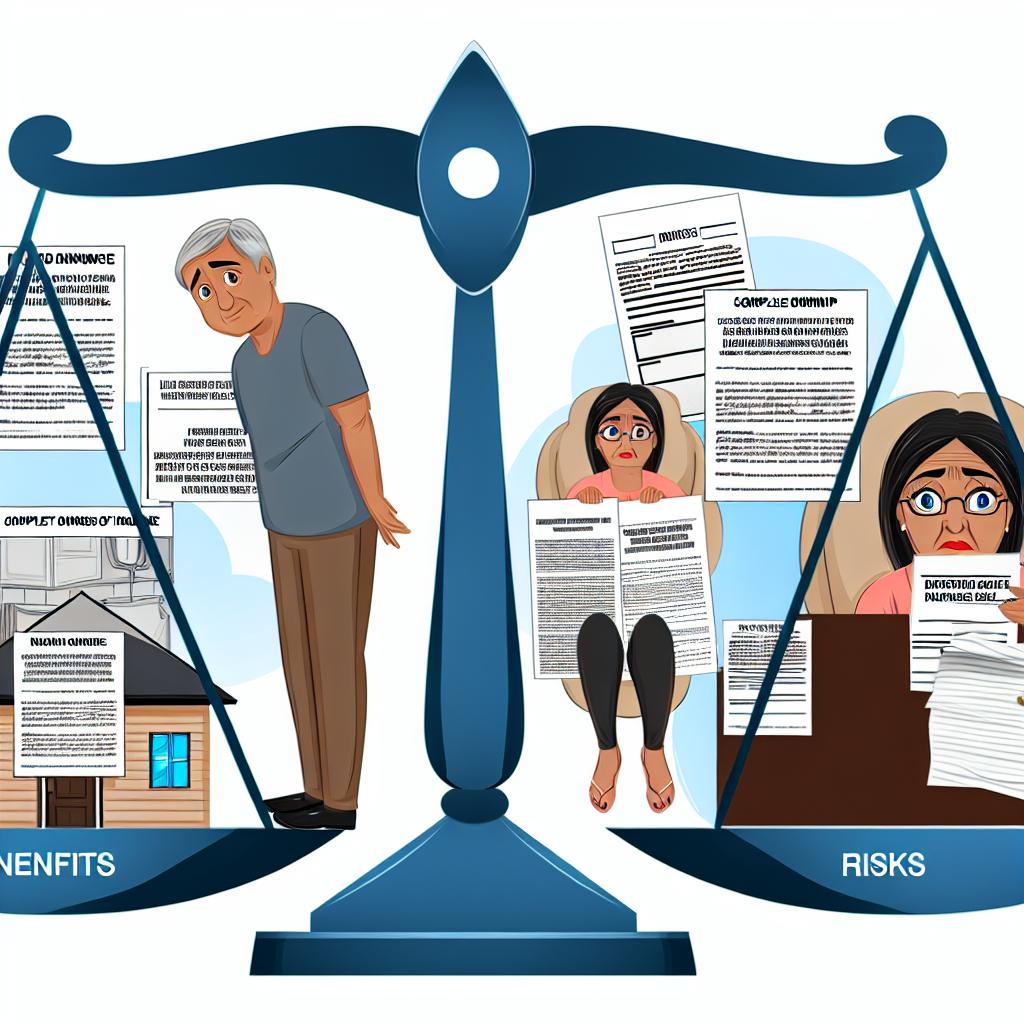
A reverse mortgage is a distinct type of financial product that allows homeowners to convert a portion of their home equity into cash, predominantly aimed at individuals over the age of 62. This unique financial solution is primarily designed to provide retirees with a reliable income source, while allowing them to continue residing in their beloved home. Unlike traditional mortgages, a reverse mortgage does not necessitate regular monthly payments. The repayment of the loan is deferred until certain specific conditions occur, such as when the homeowner decides to sell the property, permanently moves out of the residence, or passes away.
Supplemental Income: One of the significant advantages of a reverse mortgage is its ability to provide retirees with a continuous and reliable stream of income. Many retirees find themselves in a position where their savings or pension may not be adequate to cover everyday living expenses. A reverse mortgage helps address this gap by offering additional income that can be utilized to manage routine expenditures, cover healthcare costs, or even fund home improvements.
Stay in Your Home: A fundamental aspect of reverse mortgages is the ability for homeowners to remain in their homes for as long as the terms of the loan are met. This means fulfilling obligations like paying property taxes, maintaining homeowner’s insurance, and ensuring the property is kept in good condition. Essentially, as long as these requirements are satisfied, homeowners can continue to live in their home without the pressure of monthly mortgage payments.
Flexibility: Another noteworthy benefit of reverse mortgages is the flexibility they provide when accessing funds. Borrowers have several options to choose from, depending on their financial needs and preferences. The reverse mortgage can be structured to provide funds as a lump sum, regular monthly payments, or a line of credit. This adaptability allows borrowers to select a structure that best aligns with their specific financial strategy and lifestyle choices.
Accruing Interest: While reverse mortgages offer various benefits, they also have potential risks that must be considered. One such risk is the interest that accrues on the borrowed amount. Over time, as interest accumulates, the loan balance increases. This growing loan balance can subsequently reduce the amount of equity left in the home, thereby potentially diminishing the inheritance available to heirs, as more equity may ultimately be consumed to settle the loan.
Potential Fees: Prospective borrowers should also be aware of the upfront costs associated with reverse mortgages. These costs can be substantial and may include origination fees, closing costs, and mortgage insurance premiums. Such expenses can detract from the overall financial benefit obtained from the reverse mortgage. Therefore, it’s crucial for homeowners to thoroughly understand these fees and how they impact the financial outcome.
Impact on Benefits: Receiving funds from a reverse mortgage might have implications for need-based government benefits, such as Medicaid. These programs often have eligibility criteria that could be affected by the additional income received from a reverse mortgage. Homeowners must carefully assess this potential impact to ensure they do not inadvertently jeopardize their eligibility for these essential programs.
To qualify for a reverse mortgage, specific criteria must be met. First and foremost, the homeowner must be at least 62 years old. Furthermore, the homeowner should either own their home outright or carry a low mortgage balance that can be settled at closing with the funds from the reverse mortgage. Additionally, the property in question must serve as the principal residence and be properly maintained to satisfy the lender’s requirements.
Before applying for a reverse mortgage, homeowners are strongly encouraged to weigh the potential advantages and disadvantages associated with this financial product. Consulting with a financial advisor or a reputable financial regulatory agency is often recommended to gain thorough insights into the suitability of a reverse mortgage for their specific financial circumstances. It’s also advisable to involve family members or heirs in the decision-making process to foster a shared understanding of the potential implications and ensure everyone is on the same page.
In conclusion, reverse mortgages offer a practical option for homeowners seeking to tap into their home equity and supplement their retirement income. Nevertheless, comprehending the associated costs and long-term implications is paramount. By carefully evaluating these factors, homeowners can make informed decisions regarding whether a reverse mortgage aligns with their financial objectives and personal circumstances. Understanding the commitment involved and considering one’s long-term goals can help ensure that a reverse mortgage serves as a beneficial and effective financial tool during retirement.
This article was last updated on: August 21, 2025